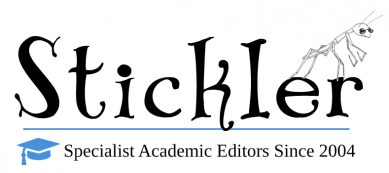When you’re looking for academic editing services in LA and beyond, you want to make sure the writing stage of the thesis, dissertation, essay, or other type of academic paper is complete. This means that all the arguments should be in place, the citations verified for completeness, and the text checked for technical accuracy.
An academic editor will help you to bring your paper up to publishing or submission standards; however, editors are not able to write your work for you. Here are some of the aspects most high-quality academic editing services can help with.
1. Document Formatting.
Students can lose valuable marks because they have failed to format their document correctly, and manuscript submissions to journals risk being rejected for publication for the same reason. Such formatting might include spacing between lines or headings, inclusion of page numbering, and specific indentation. An academic editor can help with all these things, and can also ensure that things like font, heading style, referencing style, and so on are consistent.
2. American vs. British English.
There are a number of differences between American and British English. For example, while American English uses “color,” British uses “colour.” However, just to confuse matters, while American English always uses “–ize” endings for words like “organize,” in British English both “organize” and “organise” are acceptable (for example, the Oxford English Dictionary stipulates “–ize” endings, while other dictionaries and journal styles use “–ise”). The spelling style that is appropriate for your document can depend on the conventions of your field or the style specified by your journal or other submission guidelines. However, the most suitable version will be applied as part of any academic editing service, and the editor will also have extensive knowledge of the other conventions of American vs. British English.
3. The Oxford Comma.
The Oxford (or “serial”) comma is used within lists before the final “and” or “or.” However, some styles prefer to leave it out. When you submit a professional essay, dissertation, or other type of paper for editing, your academic editor will know whether the Oxford comma should be used based on accepted standards or the style guide provided.
4. Sentence Fragments.
A sentence fragment is an incomplete sentence; in other words, it does not make sense by itself. This can be acceptable at times—for example, in bulleted lists—but fragments should generally be avoided in academic text. It can be tricky to identify a sentence fragment, but an academic editor will be able to identify issues like these easily.
5. Using only “He” or “She.”
In the past, it was acceptable to use “he” even when the person referred to could have been female (for example, “If a manager faces a problem with a subordinate, he may have to take disciplinary action.”). Today, this is often seen as outdated and potentially sexist, so in many situations “they” is considered more appropriate. An academic editor will be able to help with issues like these given the context of your argument, the conventions of your academic field, and wider language trends.
If you’re looking for academic editing services, Stickler can help. As well as editing and proofreading your document with respect to aspects such as spelling, grammar, and punctuation, our editors will help to improve your paper’s clarity and word choice, and address all the aspects above (and more!). For a full description of our professional proofreading and editing services, please check out our website. We also offer academic translation services!

